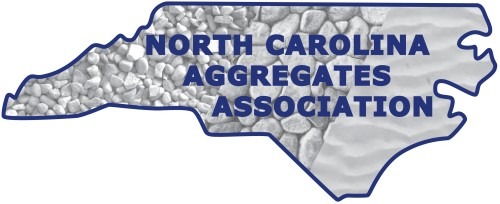Aggregates are construction materials of crushed stone, sand and gravel. The single largest market for aggregates is road and street construction, including base and asphalt paving for highways, parking lots and other pavements. One mile of a typical four-lane interstate highway with aggregate base requires about 38,000 tons. Other large markets are portland cement concrete for bridges, pavements and building structures, riprap and erosion control stone, and railroad ballast.
About 10 tons of aggregates are required annually for each North Carolina citizen, orabout 84 million tons per year. A typical residential subdivision requires about 400 tons of aggregate per home. Approximately 50 percent of all aggregate is used for publicly funded construction projects.
Firms in the aggregate industry are vitally concerned with protecting valuable air and water resources. Producers do this in a number of ways. They landscape with trees, shrubs, and grasses to control erosion, provide screens and buffers, and to beautify the quarry area. Water sprayed directly onto the stone during crushing and at other stages keeps the dust down; settling ponds purify this run-off water before it is reused or enters a stream.The North Carolina Mining Act requires all mining operations of one acre or more to obtain a North Carolina Mining permit. The permit is issued for 10 years, however, it may be revoked if all permit conditions are not followed.
Many other local and state permits and environmental regulations control the operation of aggregate plants. All sites must be reclaimed before the reclamation bond will be released at the conclusion of mining. Once reclaimed, crushed stone quarries and sand and gravel sites are desirable as water reservoirs or recreational lakes, often with residential subdivisions nearby. Beneficial land uses include wildlife habitat, agricultural fields and lakes for a variety of uses including groundwater recharge.
Wetlands are often created as a result of mining. The industry is very sensitive and responsive to its need to be a good steward of the environment and a good neighbor in the community.
